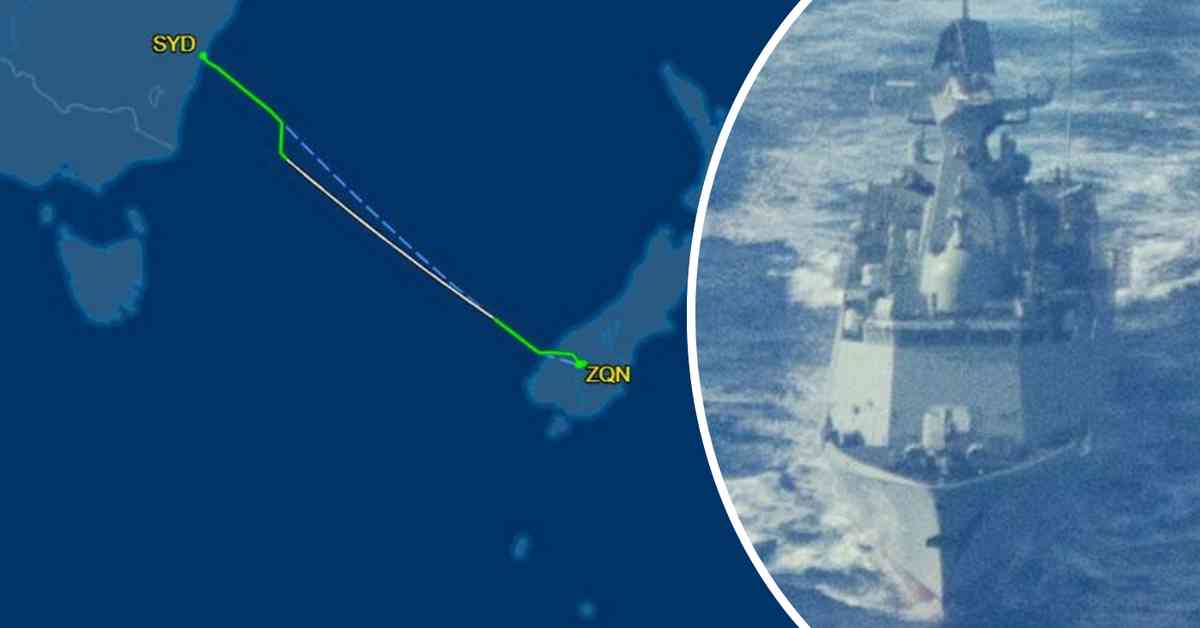Chinese Warships’ Live-Fire Drills Lead to Flight Diversions
The peaceful skies above New South Wales were disrupted today as Chinese warships engaged in what they claimed could have been live-fire drills in international waters, prompting the diversion of several flights. Despite the alert issued by Chinese authorities, the Australian Defence Force remained uncertain about whether actual live ammunition was used during the exercises.
Prime Minister Anthony Albanese confirmed that the alert from Chinese authorities included the possibility of live fire drills, causing concern among Australian and New Zealand forces who closely monitored the situation. Admiral David Johnston, Chief of the Australian Defence Force, informed the Prime Minister that the presence of live fire drills was not definitively confirmed, ultimately bringing an end to the alert.
“It is the case that the notice was given,” stated Albanese, emphasizing the standard procedure of notifying airlines to steer clear of the affected area. Airservices Australia also took immediate action in response to the alert, ensuring the safety of all flights in the region.
Uncertainty Surrounding Live Fire Drills
Despite the seriousness of the situation, there remains a level of ambiguity regarding the actual occurrence of live fire drills by the Chinese warships. Nine News national affairs editor Andrew Probyn reported that at least two pilots flying separate aircraft received broadcasts from one of the Chinese ships, forewarning them of a potential firing incident.
Flight tracking data unveiled the sudden alteration of routes by flights such as Qantas flight 121 from Sydney to Queenstown and Emirates flight 5017 from Sydney to Christchurch. Both flights were forced to adjust their paths to steer clear of the airspace approximately 500 kilometers off the Australian coast, indicating the close proximity of the naval exercises.
Albanese revealed that Foreign Minister Penny Wong is scheduled to meet with her Chinese counterpart, Wang Yi, in the near future to address the escalating situation. Both ministers are currently attending a G20 meeting in South Africa, underscoring the diplomatic efforts to navigate through the tensions arising from the Chinese navy’s exercises.
Concerns and Transparency
While acknowledging that nations have the right to conduct military drills in international waters, Foreign Minister Wong expressed reservations regarding the lack of transparency surrounding China’s recent maneuvers. Despite affirmations that the exercises were in compliance with international law, concerns lingered about the adequacy of notifications and the overall transparency of the operations.
The Chinese warships, including the sophisticated Renhai-class guided missile cruiser Zunyi, have maintained a distance of approximately 150 nautical miles (276 kilometers) from Sydney, firmly positioned in international waters. The presence of such advanced military vessels in close proximity to Australian shores has reignited discussions about maritime security and the implications of foreign naval activities in the region.
As tensions simmer and diplomatic discussions unfold, the episode serves as a stark reminder of the delicate balance that governs international waters and the complex relationships between nations. The need for transparent communication and adherence to established protocols remains paramount in averting potential misunderstandings that could escalate into more serious confrontations.
The Chinese navy’s exercises near Australian waters underscore the intricate dynamics that shape global security and the imperative of fostering open dialogue to address emerging challenges. The significance of upholding international norms and ensuring mutual respect among nations cannot be overstated, particularly in times of heightened geopolitical tensions.

















